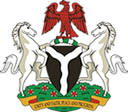Key Highlights
In Q2 2023, total capital importation into Nigeria stood at US$1,030.21 million, lower than US$1,535.35 million recorded in Q2 2022, indicating a decrease of 32.90%. When compared to the preceding quarter, capital importation fell by 9.04% from US$1,132.65 million in Q1 2023.
• Other Investment ranked top accounting for 81.28% (US$837.34 million) of total capital importation in Q2 2023, followed by Portfolio Investment with 10.37% (US$106.85 million) and Foreign Direct Investment (FDI) with 8.35% (US$86.03 million).
• The production sector recorded the highest inflow with US$605.04 million, representing 58.73% of total capital imported in Q2 2023, followed by the banking sector, valued at US$194.58 million (18.89%), and Shares with US$68.63 million (6.66%).
• Capital importation during the reference period originated largely from the United States with US$271.92 million, accounting for 26.39%, followed by Singapore and the Republic of South Africa with US$177.44 million (17.22%) and US$136.95 million (13.29%) respectively.
• Lagos state remained the top destination in Q2 2023 with US$778.06 million, accounting for 75.52% of total capital, followed by Abuja (FCT), with US$194.28 million (18.86%).
• First Bank of Nigeria Limited received the highest capital into Nigeria in Q2 2023 with US$323.13 million (18.23%), followed by Citibank Nigeria Limited with US$187.77 million (12.23%) and Rand Merchant Bank with US$126.03 (6.47%).
Data source: National Bureau of Statistics
INFOGRAPHICS



